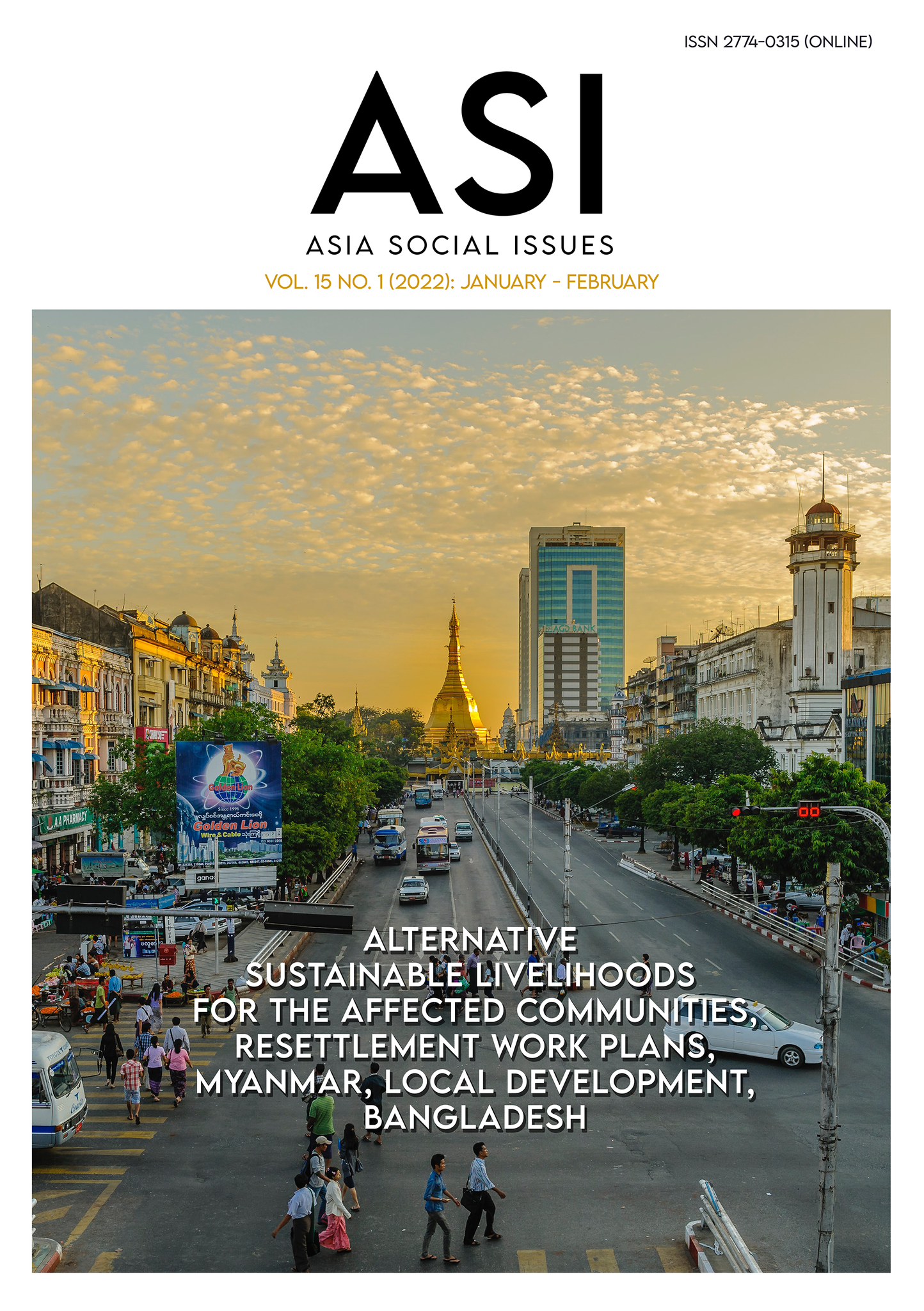Antecedents and Consequences of Social Adjustment of Undergraduate Students in Thailand: A Meta-Analysis Study
Main Article Content
Abstract
Social adjustment of undergraduate students is an issue that every educational institution worldwide regards as essential; this also includes educational institutions in Thailand. The systematic study, collection, and synthesis of antecedent factors affecting student’s social adjustment are, therefore, necessary as the data obtained from the abundance of research available can lead to new findings which can be used to design, strategize and promote students’ social adjustment, effectively addressing the social adjustment issues of students which have long been problematic. Therefore, this research’s objective is to synthesize available knowledge in the dimension of antecedent factors and consequences regarding to undergraduate students’ social adjustment in Thailand through the examination of various research publications available in the past 10 years (from year A.D. 2009-2019) through meta-analysis. Research that was used to synthesize 50 studies. Research results found that the individual’s internal factors affected student social adjustment the most. The variable of self-control has the largest average effect size. The variables of self-reliance and abstraction have negative consequences and large average effect sizes. Among the factors in the category of individuals’ external factors, the variable of participation in student activities had the largest average effect size, followed by interpersonal relationships, and participation in religious activities, respectively. In addition, under demographic factors, the variable of student age had the largest average effect size, followed by academic achievement, gender, source of funding received, and religion, respectively. These findings can be helpful in furthering strategic planning to ameliorate the social adjustment of students in higher education.
Article Details
Copyright: CC BY-NC-ND 4.0
References
Aflakseir, A. (2012). Religiosity, personal meaning, and psychological well-being: A study among Muslim students in England. Pakistan Journal of Social and Clinical Psychology, 10(1), 27-31.
Cooper, H. (2010). Research synthesis and meta-analysis (A step by step approach) (4th eds.). Thousand Oaks: SAGE Publication.
D’Silva, J., & Aminabhavi, V. A. (2013). Adjustment, self-efficacy and psychosocial competencies of drug addicted adolescents. Journal of Psychology, 4(1), 13-18.
Department of Mental Health, Ministry of Public Health. (2018). Suicidal rate per one hundred thousand population for the year A.D. 2017. Retrieved from https://www.dmh.go.th/report/suicide/download/view.asp?id=513
Hedges, L. V., & Olkin, I. (1985). Statistical methods for meta-analysis. San Diego: Academic Press.
Higgins, J. P., Thompson, S. G., Deeks, J. J., & Altman, D. G. (2003). Measuring inconsistency in meta-analysis. BMJ, 327(7414), 557-560.
Radzi, H. M., Ramly, L. Z., Ghazali, F., Sipon, S., & Othman, K. (2014). Religious and spiritual coping used by student in dealing with stress and anxiety. International Journal of Asian Social Science, 4(2), 314-319.
Reynolds, N. R., & Alonzo, A. A. (2000). Self-regulation: The commonsense model of illness representation (pp. 483-94). In Rice, V. H. (Ed.). Handbook of stress, coping, and health. Thousand Oaks: Sage.
Rosenthal. (1984). Consciousness raising: From revolution to re-evaluation. Retrieved from https://doi.org/10.1111%2Fj.1471-6402.1984.tb00639.x
Roy, C., & Andrews, H. A. (1999). The Roy adaptation model (2nd eds.). Stamford, CT: Appleton & Lange.
Schneiders, A. (1964). Personal adjustment and mental health. New York: Rinehart & Winston.
SDG MOVE. (2015). Moving towards sustainable future. Retrieved from https://www.sdgmove.com/sdg-101
Sengphairogh, W. (2012). Political consciousness and the development of democratic political culture among the youths in education Institutes in Bangkok during B.E. 2549 - 2554 (Doctoral dissertations). Bangkok, Thailand: Krirk University.


